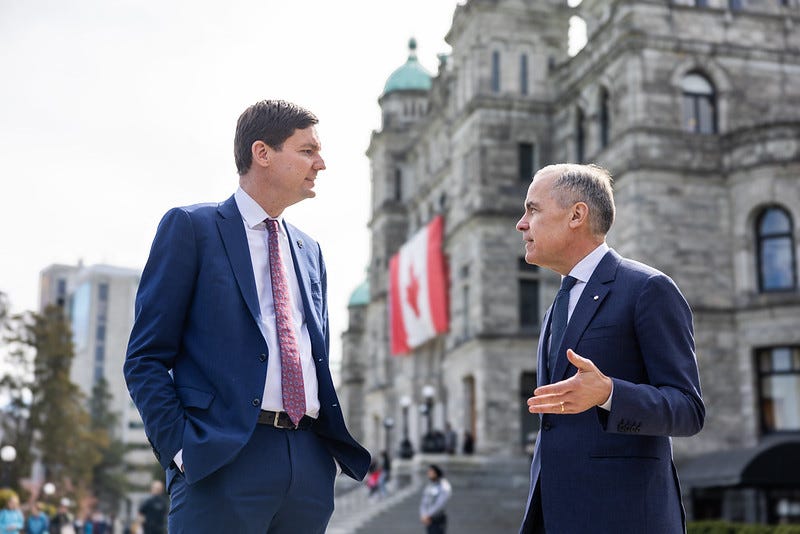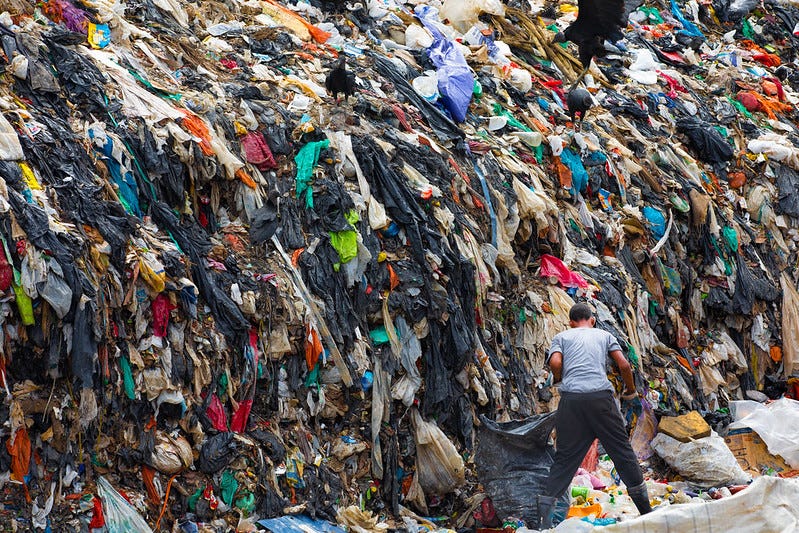Canada's election opens up historic clean energy opportunity
Forget the 51st state. Mark Carney can take Canada to the top of the climate-fighting charts with smart leadership.
In today’s edition:
— Canada’s Mark Carney becomes the most high-profile climate globalist to run a major country
— ISSB removes Scope 3 climate reporting from financial derivatives trading
— The modern city buried by a volcano in the 1990s — a PBS documentary
— What’s a bigger cause of destructive flooding: urban buildup or climate change?
— Climate risk costs to companies could reach $1.2 trillion by the 2050s, S&P Global says

Climate change didn’t play much of a role in Canada’s election this week. Despite living in a country ravaged by wildfires in recent years, most Canadians didn’t count fighting global warming in their top 10 most-pressing issues, almost all of which involved standing up to U.S. President Donald Trump in some way.
But Liberal leader Mark Carney, the most high-profile climate globalist to ever become head of a major country after Monday’s election, suddenly has a historic opportunity to illustrate how a Democratic country can reduce a history of harmful carbon emissions and introduce a new era of clean energy.
The former head of central banks in Canada and England and one of the best-known leaders of international climate summit groups and conferences, Carney has kept a purposefully low profile on climate in the weeks since he was elected leader of his party to face Conservative leader Pierre Poillevre in the national election.
Carney quickly abandoned an unpopular carbon tax on consumers that had been implemented by his predecessor, Justin Trudeau, while keeping a more effective industrial carbon tax on plants and factories. He also presided over a pause by regulators on introducing mandatory climate disclosure rules for businesses.
Canada, with its vast oil fields and oil sands, is the world’s 11th largest emitter of harmful carbon pollution, sandwiched in between Saudi Arabia and Mexico. But it also broke into the top 10 last year in clean energy investment, putting more than $2 trillion to work on renewable energy projects, according to BloombergNEF.
Carney said in his victory speech that Canada can become an “energy superpower” in both clean energy and traditional fossil fuels, as well as fighting climate change.
Carney was primarily elected because he is viewed as the most capable political leader to stand up to the attacks by Trump and his team. But his remit is larger than that, and if he can continue the country’s renewable transition while also investing heavily in its traditional oil and gas infrastructure, he has a unique opportunity to illustrate to the world that a messy Democracy is just as suited to executing a transition as an authoritarian country like China.
At a time when the U.S. Secretary of State last week just closed the State Department’s office responsible for leading climate negotiations around the world — yes, the one John Kerry ran — Prime Minister Carney has instantly become every climate summit’s top A-lister. We know who won’t be watching south of the border in the U.S. But how Carney is followed by other potential political leaders is one of the few reasons in this chaotic year for climate optimism going forward.
Don’t forget to contact me directly if you have suggestions or ideas dcallaway@callawayclimateinsights.com.
Follow us . . . .
Twitter | LinkedIn | Facebook | Instagram
Tuesday’s subscriber insights
ISSB removes Scope 3 reporting requirement for financial derivatives trading
Keep reading with a 7-day free trial
Subscribe to Callaway Climate Insights to keep reading this post and get 7 days of free access to the full post archives.


